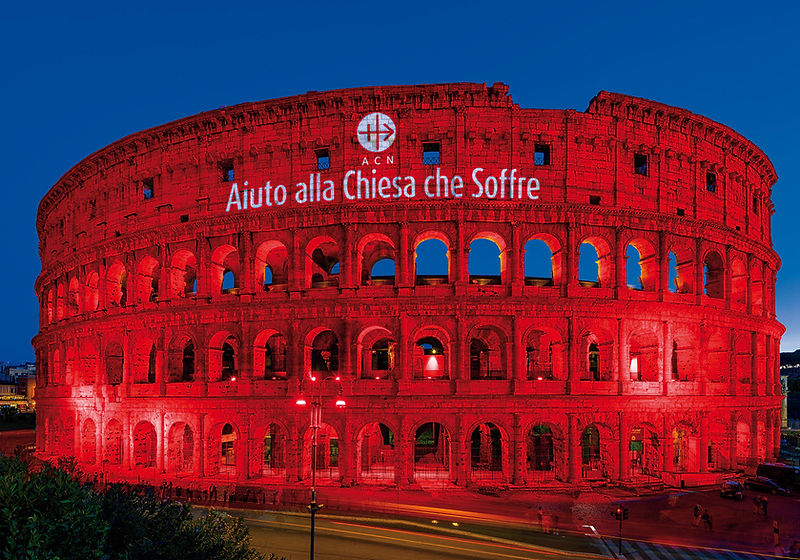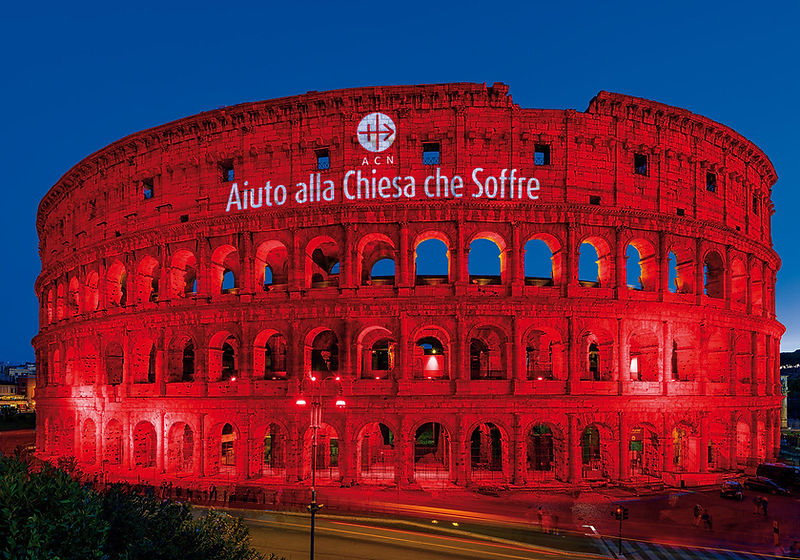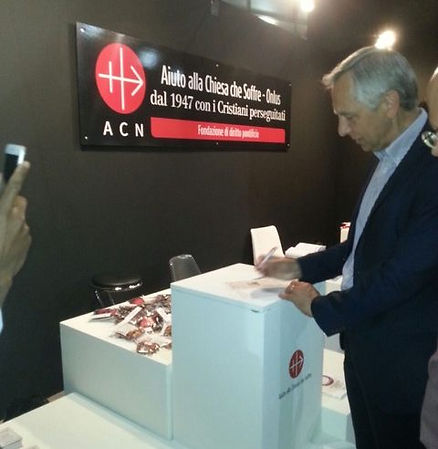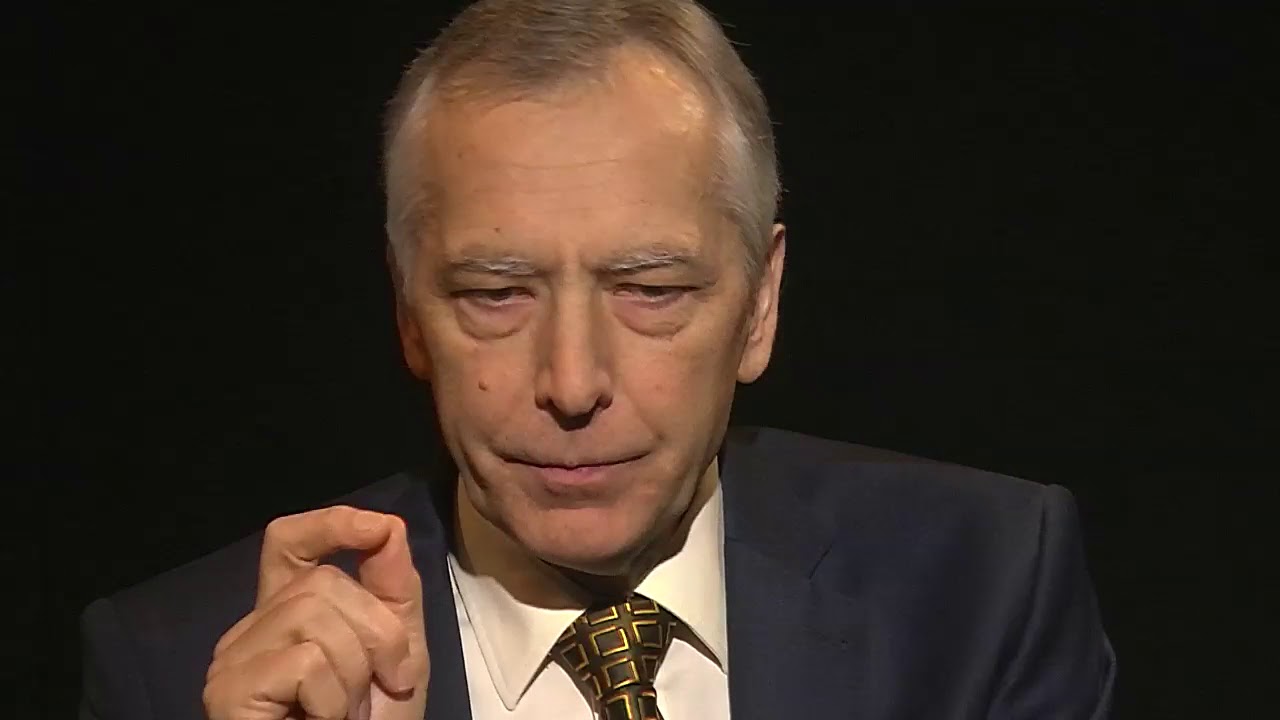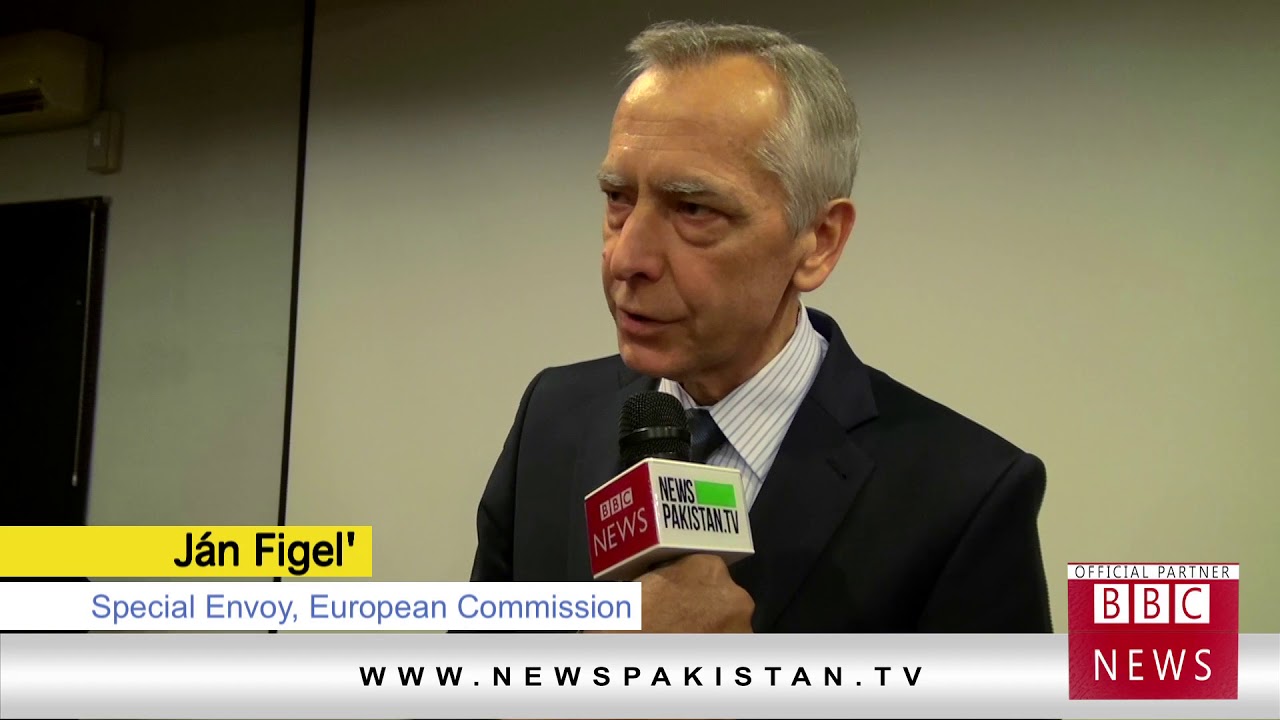
This weekend on 24 February at 6 p.m. Rome’s Colosseum will be bathed in red light to commemorate the blood of the Christian martyrs – particularly the martyrs of our own time. Simultaneously, both in Mosul, Iraq and in Aleppo, Syria, prominent symbolic buildings will be similarly illuminated, in union with the initiative. In Portugal too the Sanctuary of Christ the King in Almada, overlooking the city of Lisbon, will be lit up in red light in the same way.
“I truly appreciate this initiative, which is very relevant at this time and links past history with the present situation. Events like the illumination of the Colosseum can open people’s hearts and minds, awaken their interest in the subject of religious freedom and encourage them to show greater solidarity with those who suffer in this way.” With these words, Ján Figel, the EU Special Envoy for the promotion of religious freedom, expressed his support for the forthcoming initiative, organized by the international Catholic pastoral charity and pontifical foundation Aid to the Church in Need (ACN).
Among the senior figures who have announced their participation in the event in Italy are suchpersonalities such as the Vatican’s Secretary of State, Cardinal Pietro Parolin, the Secretary-General of the Italian Episcopal Conference, Bishop Nunzio Galantino, and the President of the European Parliament, Antonio Tajani.
ACN is organizing these initiatives to open the eyes of the world to the violations of religious freedom, which are all too often overlooked by the world media and the international community. An indifference likewise deplored by Ján Figel himself. “Unfortunately, the media and the politicians do not pay sufficient attention to this situation. This silence and indifference can only help those who commit these crimes and discriminate still further against their victims.”
Paul Bhatti, the brother of Shahbaz Bhatti, the Pakistani Minorities Minister assassinated on 2 March 2011, has also praised the initiative of ACN. “We cannot remain silent in the face of these brave people who have sacrificed their lives for their faith in Christ and for their fellow men”, he said. During the commemoration ceremony the faces of several of the Christian victims of persecution in our time will be projected onto the facade of the Colosseum, including that of Shahbaz Bhatti himself. “My brother gave his life, not only for the rights of Christians, but for those of all the minorities, including the Muslims”, Paul Bhatti remarked, recalling the work of the Pakistani minister, who was assassinated for his efforts to modify the so-called blasphemy laws. “It is a duty”, he added, “to pay homage to these martyrs by means of events such as this one and to honor their memory.”
The current absence of respect for religious freedom and freedom of worship is “alarming”, said the EU Special Envoy for freedom of religion or belief. “Some 75% of the world’s population today lives in countries where there are grave and even extreme violations of this fundamental human right. And unfortunately this tendency is continuing to worsen. The denial of these rights is being exacerbated by intolerance and discrimination and persecution, even to the point of genocide.”
Reflecting on the heroism of these new martyrs is also a means of nurturing the faith of the West, said Magdalena Santoro, the sister of Father Andrea Santoro, the Catholic priest murdered in Turkey on 5 February 2006. “If my brother was concerned for the few Christians still remaining in Turkey, who suffer serious limitations in the practice of their faith, he was still more concerned at the lack of faith in the West. ‘You don’t know what you’re losing’, he used to tell us, every time he visited us in Italy.”
Ján Figel concluded: “There are many stories of this kind which are a great source of inspiration for us all. One figure particularly dear to me is Saint Maximilian Kolbe, the Polish priest who offered his life in the Auschwitz concentration camp to save the life of another man.”

